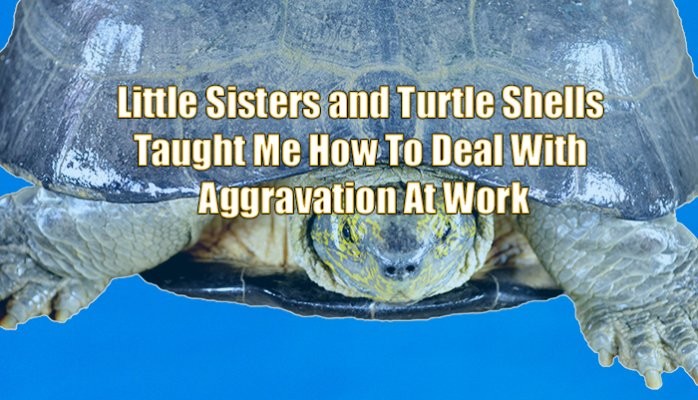
A Silent Career Killer
A Silent Career Killer
Early one morning I sat at my desk reading and re-reading an email from an employee. I could feel the frustration and I hadn’t even had my first shot of espresso yet, and it took every ounce of control not to walk over to the wall and bang my head against it.
What was it that caused me to get a headache early in the morning? Why was my high performer suddenly turning in half-finished work product?
Was there some viral slacking bug infecting my team? No, unfortunately it was nothing that simple.
Instead, it is something that is the bane of every progressive, fast-moving, innovative leader.
It’s something that keeps me up at night. It’s something that is so irritating, aggravating, annoying and causes me to grind my teeth in an effort to keep my patience under control.
What, is it you ask? What could possible cause so much harm?
It is a silent career killer, an attitude that many employees unconsciously adopt.
A lack of curiosity.
There. I said it.
It pains me even to write it.
My keyboard might even explode as a result of typing it.
Now, some of you might be thinking, “What is the big deal? That was a big build up for a whole lot of nothing.”
Let me tell you, few things are more dangerous to a department – and a company – then an employee’s lack of curiosity.
It is especially dangerous in a marketing department, where we depend on our team members’ curiosity in order to explore and keep up with evolving technologies.
What exactly do I mean by “curiosity”?
The dictionary states it is “the desire to know something: eagerness to know about something or to get information.”

In the workplace, curiosity is the lifeblood that flows in the veins of an organization, bringing ideas and innovation.
For employees:
-
- Curiosity in an employee is stopping and thinking about the task they are doing instead of robotically doing it.
- Curiosity means thinking about what the next step might be and how the task they are working fits into it.
- Curiosity means asking “is there a better/faster/more efficient way to do this task?
- Curiosity means keeping up on new technology and playing around with it in your free time or asking your manager if you can try the task out in parallel in the new technology to see if it is more efficient.
- Curiosity means knowing what is going on in the world around you, outside your regular sphere of influence. You never know where you next great idea will come from.
- Curiosity means reading at least one “real” news publication a day to know what is going on in the world and being able to talk intelligently about world events, not just about reality TV.
- Curiosity means identifying a challenge and instead of dumping it on your managers desk, researching solutions, outlining a proposed solution and giving that to your manager with the backup research so they can just make modifications.

Get the point?
Curiosity is necessary to move ahead in a career.
It is the “what if I” and “how can I” and “where can I” of the job.
It is exciting. It is how we learn and grow.
It is how we challenge ourselves to stay interested in what we are doing.
The moment I have an employee bringing me something half-done, or telling me they don’t know what to do next when all they need to do was ask the person next to them, or pick up the phone to figure it out – I know the individual has lost their curiosity.
This is a sign that they are disengaged from their job and I’ve found that there are usually three causes:
- They hate their job (Some would argue that they are satisfied with things the way they are and don’t need to be curious. That’s an excuse. You hate your job.)
- They have something personal going on in their life that is affecting their work
- They are looking for a new job
So as leaders and managers, what can we do?
Well, that’s a HUGE discussion, one that could take months and pages to discuss.
Instead, I will share my top three suggestions for encouraging curiosity:
- Interests: Find out what interests your employee and encourage them. It could be learning a new skill or taking a new class. It could be as simple as leaving on time to coach their kids’ games. Discover their interests and encourage them to pursue them. Ideas come from all areas of life and when your brain is rested or doing different activities. So encourage what interests them. It helps the ideas flow.
- Variety: While some individuals are hired to do a particular task, offer them the chance to work on different projects or help another colleague. Encourage cross-training. It can lead to them developing new interests and ideas within the company and that can lead to better ways of doing things as well. You never know.
- Growth: Give your employees a “growth” project that will benefit them and their career. Show them how it will build their skills and position them for growth. It will do wonders once they take ownership of their own career and see you taking an investment in them.

So what did I end up doing with that particular employee? I quickly found out that their apathy was due to their upcoming out-of-state move. Still, it was frustrating and stressful for the rest of the team to work with an indifferent teammate.
Cultivate curiosity in your team.
It will drive your best performers to achieve beyond your expectations and launch them from their current roles into their future careers.




